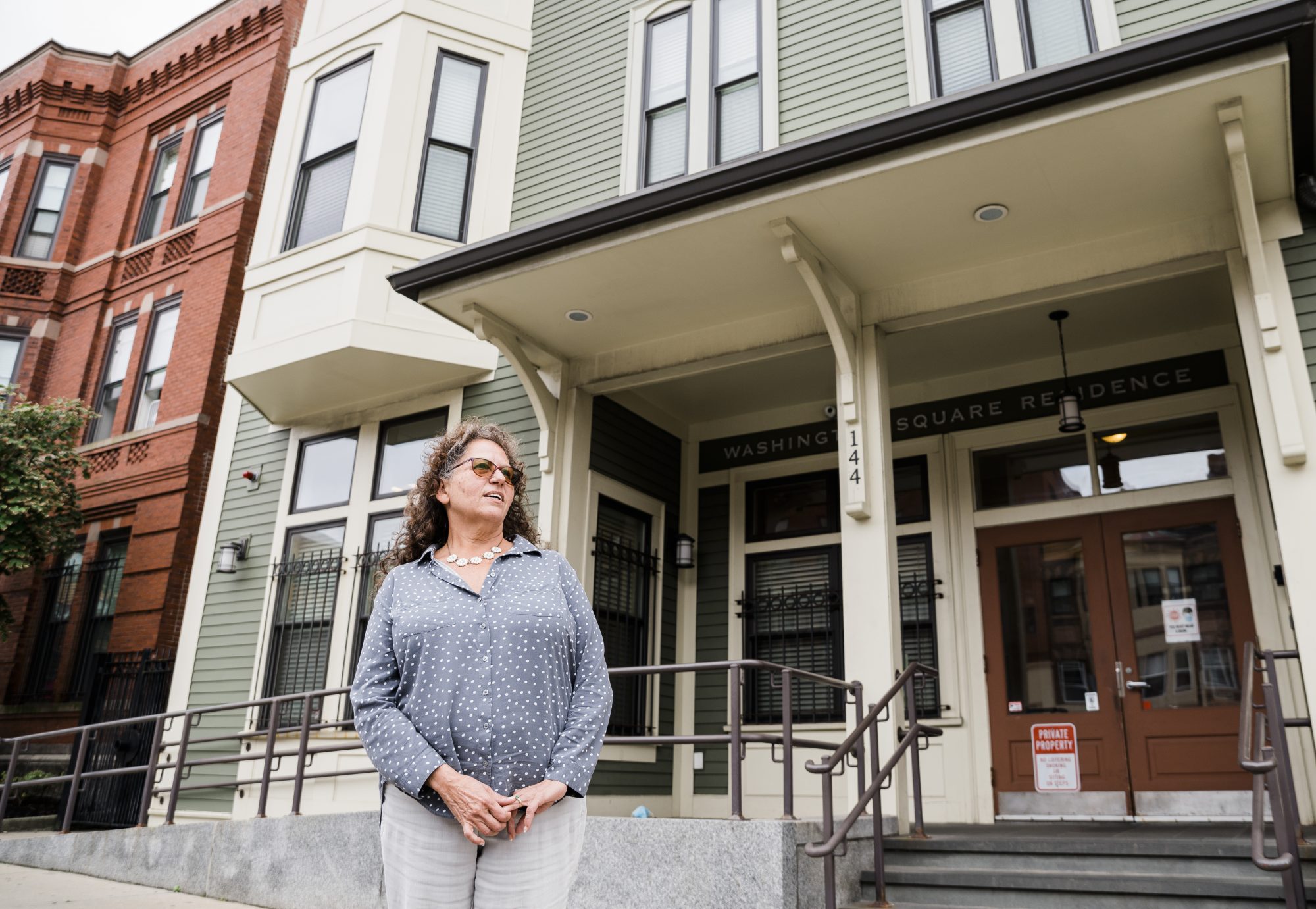LYNN — As of last week, the Washington Square Residence, formerly known as the Lynn Home for Young Women, has provided affordable housing and support to its tenants for more than a century.
Originally founded as a house for single women over the age of 36 in 1912, the 144 Broad St. Residency underwent significant renovations in 2012, when it reopened to both men and women as an affordable housing community. Now, the residence serves 43 tenants between the ages of 17 and 96.
The residence’s manager, Lisa Connolly, has been involved with the building since 2007 before she took over as executive director in 2009. She said that the pre-renovated women’s house, in which every five residents shared one bathroom in an antique building, was difficult to manage.
“We were still operating as a women’s only rooming house with an extremely old dilapidated building with one bathroom to five women. They were old bathrooms and so you plugged in your hairdryer and your curling iron and the power went out,” Connolly said. “It was a beautiful old building, I used to go down to the basement every once in a while … we’d have to start the furnace with a lighter.”
Connolly said that during the pandemic took a heavy toll on the residence’s community, as residents accustomed to nightly community dinners and regular gatherings were forced to stay in their rooms.
“COVID did a big number on us, because we are a shared housing facility. It’s not like an apartment building where you go down the hall, and it’s your unit, we have a lot of shared space because people have one room. So we have a dining room, a computer room, and a TV room. Obviously during COVID all of those spaces were shut down,” she said.
Despite the fact that the house only saw two COVID-19 cases, the pandemic also played a large role in her residents’ mental health. Connolly said that some of her residents in addiction recovery struggled to cope without their regular meetings, and without a sense of community.
“A lot of mental health issues, a lot of loneliness, despair, fear, especially in the beginning, people were terrified. I think we all were, to some extent. We connected with the community health center, we ran a couple of vaccination clinics, and I think that really helped people feel more comfortable,” Connolly said. “We serve the recovery community, we have a number of tenants who are in recovery services, and that was super hard for them to lose their ability to meet in person and then get on Zoom.”
Connolly said that although the dining room remains closed to protect elderly and immunocompromised residents, she hopes to see it reopened soon so that residents can go back to socializing and sharing meals together as a community.
Although 110 years have passed since the building first opened as a women’s house, and everything from room occupancy sizes to house rules regarding Sunday behaviors have changed, Connolly said that the institution’s more timeless and positive programs have remained more or less the same.
“What’s old is new again. In the beginning, Lynn Home for Women offered classes in budgeting, and millinery, which is making hats, because 100 years ago, it was very popular to wear hats, and English classes that were all offered to the residents. It’s much the same today. We help people with budgeting, finance, credit card debt, things like that, learning English, we have a number of immigrants and refugees who have come to live here,” Connolly said. “While we don’t teach millinery, we do offer scholarship assistance if people want to go to college, so it’s that whole-person focus, which is new and old.”
In the next few years, Connolly said that she would like to secure air conditioning and solar panels for her tenants.
“I’d love to get some solar energy going, and the building is not fully air conditioned. People use those room air conditioners, but they’re costly, and they’re unsightly, so I would like to figure out a way to get air conditioning. … It’s hot up there,” Connolly said.
The courtyard behind the house is lined with flowers, string lights, a gazebo, and a large mural painted by Beyond Walls depicts two women embracing one another with a hug. The image, painted high on the building’s brick side wall, seemed to signify what Connolly described as the heart of her organization: community and connection.
“This job, and this particular organization, has always had a mission, not just to provide housing, but to provide a community, as we say, and, a meal and get together. That, to me, is the more important part of my job. Making sure that, you know, we’re following the program directives of these housing programs can be a little confusing, but the really fun, kind of the meat of the job, is the tenants,” Connolly said.
Anthony Cammalleri can be reached at [email protected]

